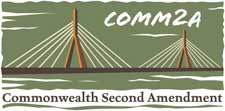
Jamaica Plain, MA –-(Ammoland.com)- Recently Comm2A filed a 28(j) letter, Citation of Supplemental Authorities, in the case of Davis v. Grimes, currently under advisement in Federal Court. Comm2A’s letter calls to the court’s attention recent decisions from other courts that directly bear on the issues presented in Davis.
Additional authorities cited include Hill v. Provencher (Bristol Superior Court), Morris v. U.S. Army Corps of Engineers (U.S. District Court for the District of Idaho), and Peruta v. San Diego (U.S Court of Appeals for the Ninth Circuit).
In Peruta, a 2-1 majority panel of Ninth Circuit judges ruled that San Diego’s requirement that applicants for a concealed carry license show ‘good cause‘ above a generalized concern for one’s safety violated the Second Amendment rights of the plaintiffs.
San Diego’s County’s refusal to recognized basic self-defense as ‘good cause’ tracts directly to the issues being litigated in Grimes v. Davis. While appeals court opinions are not normally controlling outside the jurisdiction of the issuing circuit, they are persuasive and other courts take notice.
Writing for the majority, Judge Diarmuid O’Scannlain relies heavily on the Supreme Court decisions in District of Columbia v. Heller and McDonald v. Chicago as well as a historical analysis of the Second Amendment.
(page 49)
We thus disagree with those courts- including the district court in this case – that have taken the view that it is not necessary (and, thus, necessary not) to decide whether carrying a gun in public for the lawful purpose of self-defense is a constitutionally protected activity.Understanding the scope of the right is not just necessary, it is key to our analysis. For if self-defense outside the home is part of the core right to “bear arms” and the California regulatory scheme prohibits the exercise of that right, no amount of interest-balancing under a heightened form of means-ends scrutiny can justify San Diego County’s policy. See Heller, 554 U.S. at 634 (“The very enumeration of the right takes out of the hands of government-even the Third Branch of Government-the power to decide on a case-by-case basis whether the right is really worth insisting upon.”).
(page 53)
Because the Second Amendment “confer[s] an individual right to keep and bear arms,” we must assess whether the California scheme deprives any individual of his constitutional rights. Heller, 554 U.S. at 595. Thus, the question is not whether the California scheme (in light of San Diego County’s policy) allows some people to bear arms outside the home in some places at some times; instead, the question is whether it allows the typical responsible, law-abiding citizen to bear arms in public for the lawful purpose of self-defense. The answer to the latter question is a resounding “no.”(page 55)
To reason by analogy, it is as though San Diego County banned all political speech, but exempted from this restriction particular people (like current or former political figures), particular places (like private property), and particular situations (like the week before an election). Although these exceptions might preserve small pockets of freedom, they would do little to prevent destruction of the right to free speech as a whole.
The decision is long at 127 pages, and includes the opinion of the dissenting judge as well as case citations. It’s well worth reading as the decision is well crafted and clearly defines how the majority judges view the Second Amendment.
The case is not over, as San Diego County still has the option of petitioning for a rehearing en banc (full circuit panel) or even even to the U.S. Supreme Court.
SupportSupport Comm2A
As always, these projects rely entirely on the support we receive from our donors. With our website we’ve made it easier than ever to support Comm2a in our effort to make the changes to you want to see. Recurring donations are the lifeblood of Comm2A and it’s easy to charge them. Please donate today and help change Massachusetts for the better.
ABOUT
Comm2A is a not-for-profit charitable organization as defined under Section 501(c)(3) of the Internal Revenue code. Donations made to Comm2A are fully tax deductible as charitable contributions for US federal income tax purposes. All donations are greatly appreciated and will be used to support a variety of legal and educational projects. Visit: www.comm2a.org
